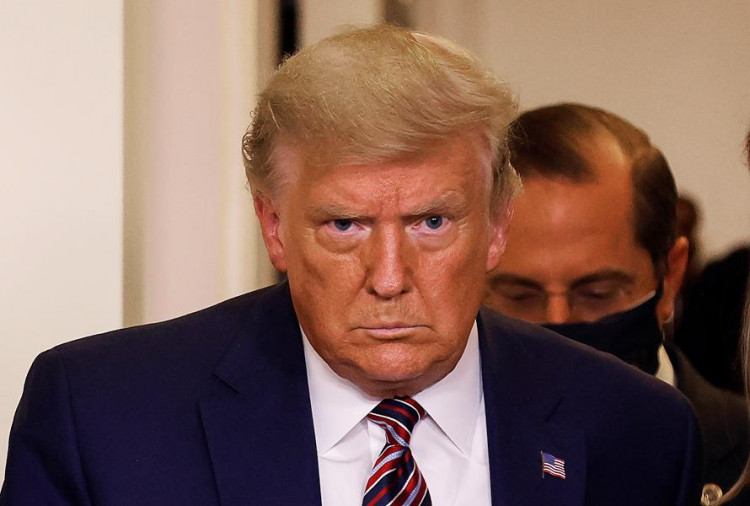A federal jury in Manhattan ordered former President Donald Trump to pay an additional $83.3 million to E. Jean Carroll, a sum that dramatically escalates the financial repercussions Trump faces from his protracted legal battle with the former advice columnist. This recent development compounds a prior $5 million award to Carroll from another defamation and sexual assault case, ballooning Trump's total obligation to a staggering $88.3 million.
E. Jean Carroll, 80, emerged victorious in this legal skirmish, a fact she underscored in a poignant statement released through her publicist: "This is a great victory for every woman who stands up when she's been knocked down, and a huge defeat for every bully who has tried to keep a woman down." The jury's verdict, delivered after Carroll's resolute pursuit of justice, sends a potent message about accountability and the consequences of defamation.
The case, which has ensnared Trump amidst his fervent campaign for a third Republican presidential nomination, underscores the potential legal liabilities that continue to shadow his political ambitions. Trump's immediate response to the verdict was a blend of defiance and indignation, as he declared, "Absolutely ridiculous! Our Legal System is out of control, and being used as a Political Weapon."
His attorney, Alina Habba, echoed this sentiment, signaling an unwavering commitment to contest the jury's decision. "It will not deter us. We will keep fighting. And, I assure you, we didn't win today, but we will win," she stated.
The hefty financial award is rooted in Carroll's allegations of a violent encounter with Trump in the mid-1990s at the upscale Bergdorf Goodman department store in Manhattan. Although a previous jury stopped short of labeling the incident as rape, they found Trump liable for sexual abuse and defamation-a verdict Trump vehemently disputes and seeks to overturn through an appeal.
Trump's legal entanglements, which span allegations of election interference, mishandling classified documents, and more, have paradoxically become a centerpiece of his political narrative. He portrays these legal challenges as evidence of a politicized judiciary intent on thwarting his political resurgence, a claim that resonates with his core base but is met with skepticism from wider circles.
The proceedings of the trial were marked by high drama, with Trump's abrupt exit from the courtroom during closing arguments, only to return for a brief period before the jury's deliberation. His absence at the moment of the verdict's announcement was a silent testament to the gravity of the situation.
The punitive nature of the $83.3 million award, intended to deter Trump from future defamatory conduct, reflects the jury's determination to impose a consequence commensurate with his stature and purported wealth. Carroll's attorney, Roberta Kaplan, implored the jury to deliver a verdict that would resonate with Trump, emphasizing the need for a punitive sum that would command his attention.
"Donald Trump is prepared to use his wealth and power to defame people whenever he wants," Kaplan argued, underscoring the imperative of a substantial punitive award.
Trump's reaction to the verdict and his attorney's subsequent comments underscore the divisive nature of this legal battle and its implications for Trump's public persona and political future. As Trump navigates the aftermath of this costly verdict, the broader implications for his political viability, financial stability, and legacy remain to be seen.
With the 2024 presidential election on the horizon, the ramifications of this case, coupled with Trump's other legal challenges, will undoubtedly play a critical role in shaping his political trajectory and the broader narrative around accountability and justice in public life.
The jury's decision not only represents a financial blow to Trump but also serves as a stark reminder of the legal and ethical responsibilities that accompany public figures' actions and statements. As the legal saga unfolds, the case's outcome and its broader implications will continue to captivate public attention and stimulate debate about the boundaries of free speech, the accountability of power, and the role of the judiciary in upholding the principles of justice and equity in society.






